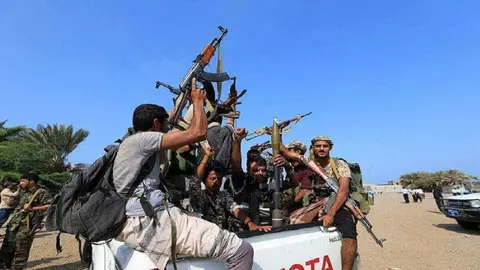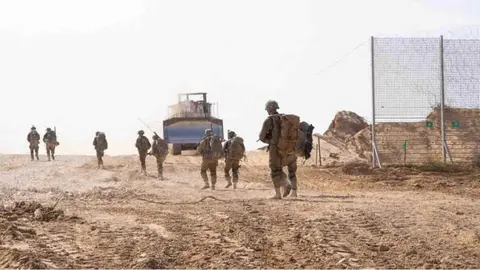US announces international coalition to protect shipping in the Red Sea

After several attacks and countless threats from Yemen's Houthi rebels - backed by the Islamic Republic of Iran - the United States has decided to take matters into its own hands and ensure navigation in the Red Sea. To this end, Washington has announced a 10-nation international coalition to deal with missile and drone attacks by the Houthis on boats transiting the region.
The coalition, which is part of Operation Prosperity Guardian, includes the UK, Bahrain, Canada, France, Italy, the Netherlands, Norway, Seychelles and Spain, which will conduct joint patrols in the southern Red Sea and the Gulf of Aden.
"Countries seeking to uphold the fundamental principle of freedom of navigation must come together to meet the challenge posed by this non-state actor," US defence secretary Lloyd Austin said in a statement. In a virtual meeting with ministers from more than 40 countries, Austin urged other nations to contribute to the operation, condemning the "reckless actions of the Houthis".
Since the start of the war between Israel and Hamas on 7 October, the Houthis have attacked and hijacked commercial vessels, threatening to take similar action against all ships heading for Israeli territory, regardless of their flag.
The Houthis, who have announced their support for the Palestinian terrorist group, have urged international shipping companies not to deal with Israeli ports. In addition to these threats, Yemeni rebels are also launching attacks against Israel, specifically against the southern Red Sea city of Eilat.
Defense Ministry publishes footage showing the launch of an Arrow missile this week, intercepting a missile launched by the Iran-backed Houthis in Yemen at Eilat. pic.twitter.com/l9V4dsOeuh
— Emanuel (Mannie) Fabian (@manniefabian) November 17, 2023
All these actions jeopardise one of the most important transit routes globally, with an estimated 12% of world trade passing through the Red Sea.
However, this situation has affected maritime trade, forcing commercial vessels to divert to Africa, resulting in further costs and delays that are expected to worsen in the coming weeks.
Together, the companies that have diverted ships "control about half of the global container shipping market," ABN Amro analyst Albert Jan Swart told Reuters.

Oil company BP has even temporarily halted the transit of all its ships through the Red Sea because of the threat posed by the Houthis. BP joins other companies such as MSC and Maersk that have also temporarily suspended the passage of their ships through the area due to the deteriorating security situation for shipping.
The situation has led to a nearly two per cent rise in oil prices. "Now you have to factor in rising supply costs as an increasing number of tankers are stopping all their routes through the Red Sea Strait," Fawad Razaqzada, a market analyst at StoneX, told the news agency.
The latest ships to be attacked by the Huthis for being "linked to Israel" have been the Norwegian-owned Swan Atlantic, another vessel identified by the Huthis as the MSC Clara. In a statement, the Yemeni rebels said they had carried out a "military operation against two ships linked to the Zionist entity" using naval drones.
4/ The Houthis claimed to have conducted two drone attacks targeting the Norwegian-owned, Cayman Islands-flagged Swan Atlantic tanker and Swiss-owned, Panama-flagged MSC Clara container ship in the Red Sea. pic.twitter.com/vvrnsWDv2f
— Institute for the Study of War (@TheStudyofWar) December 19, 2023
However, the owner of the Swan Atlantic, Norwegian Inventor Chemical Tankers, said in a statement that the ship was carrying biofuel feedstock from France to Reunion Island. He said the ship "has no links to Israel" - like many of those attacked - and was managed by a Singaporean company.
These incidents coincided with a visit to Israel by Lloyd Austin, who blamed Iran directly for the Houthi attacks. "Iran's support for Houthi attacks on commercial vessels must stop," he said. The Houthis have declared themselves part of the so-called 'Axis of Resistance', a group of Middle Eastern militias supported by Tehran, such as Hamas or Hezbollah.
Footage of Houthi forces hijacking the ship Galaxy Leader in the Red Sea yesterday. pic.twitter.com/PSFLpV4FLA
— OSINTtechnical (@Osinttechnical) November 20, 2023
Meanwhile, over the weekend, a US destroyer again shot down dozens of drones in the Red Sea launched from Houthi-controlled areas of Yemen, according to the US military.
The UK also said one of its destroyers had shot down a suspected attack drone in the area. The last time the British Royal Navy shot down an aerial target in combat was during the first Gulf War in 1991.










